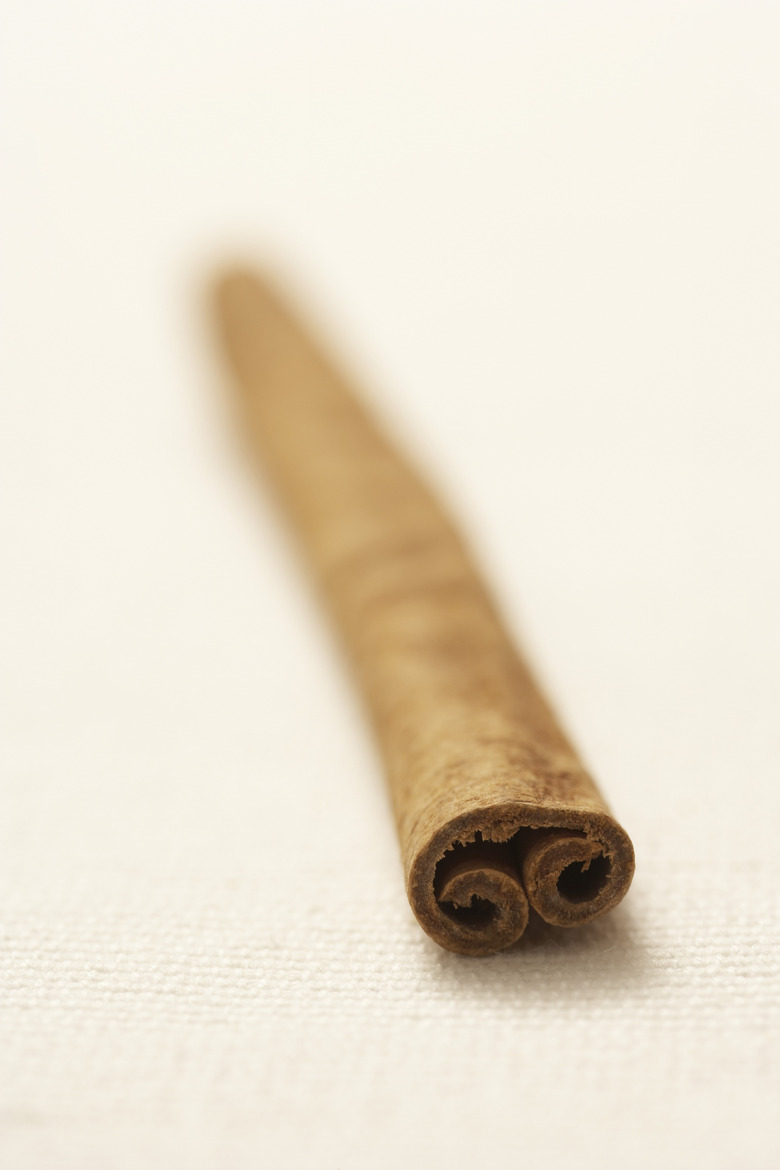Does Cinnamon Kill Candida?
Candida albicans is a common fungus that colonizes the human body. Sometimes, candida becomes overgrown, resulting in candidiasis – also known as a yeast infection. This is characterized by white patches or cracking in the mouth and throat, red patches and blisters between the fingers and toes and vaginal irritation. Individuals with weakened immune systems are especially prone to developing oral candida infections. There is some scientific evidence that supports the use of cinnamon to combat excessive candida growth.
Step 1
Essential oil of cinnamon has long been recommended by alternative health care providers for the treatment of candida, including excessive intestinal candida growth as well as oral thrush and vaginal infection. There is some scientific data in support of this treatment. Harry G. Preuss of Georgetown University Medical Center reports success in treating mice colonized by candida with cinnamon essential oil. A 2011 study published in "Mycopathologia" found that cinnamon oil may be effective for cleaning the strains C. parapsilosis and C. orthopsilosis and from medical equipment, as well as preventing yeast cultures from forming.
Other Health Uses for Cinnamon
Step 1
According to Harry G. Preuss of Georgetown University Medical Center, cinnamon essential oil may be effective against Staph infection. Cox College reports that cinnamon is an effective treatment for colic, and relieves excessive stomach gas. One to 6 grams of cinnamon daily may help diabetics regulate their blood sugar, though scientific support for this application is limited. The University of Maryland Medical Center lists cinnamon Chinese bark among traditional herbal therapies for pancreatitis.
Step 2
- Essential oil of cinnamon has long been recommended by alternative health care providers for the treatment of candida, including excessive intestinal candida growth as well as oral thrush and vaginal infection.
- According to Harry G. Preuss of Georgetown University Medical Center, cinnamon essential oil may be effective against Staph infection.
Other Treatments for Candida
Step 1
Candida overgrowth is conventionally treated with anti-fungal preparations. Thrush may be treated with an anti-fungal mouthwash; skin and vaginal infections are usually treated with a topical cream. Severe and dangerous infections may be treated with amphotericin B intravenously. The University of Maryland Medical Center recommends probiotics to treat candida. Vitamins B and C, as well as calcium and fatty acids may be effective in combating candida overgrowth.
Other Herbal Treatments for Candida
Step 1
Garlic and propolis have anti-fungal properties and may be effective both when applied topically or taken internally to discourage candida growth. Echinacea juice can be ingested in small amounts to treat vaginal yeast infection, says the University of Maryland Medical Center. Tea tree oil could be useful as a mouthwash for treatment oral thrust, but it must not be swallowed; pomegranate gel has also been use with some success, and is not dangerous to ingest.
Step 2
- Candida overgrowth is conventionally treated with anti-fungal preparations.
- Tea tree oil could be useful as a mouthwash for treatment oral thrust, but it must not be swallowed; pomegranate gel has also been use with some success, and is not dangerous to ingest.
